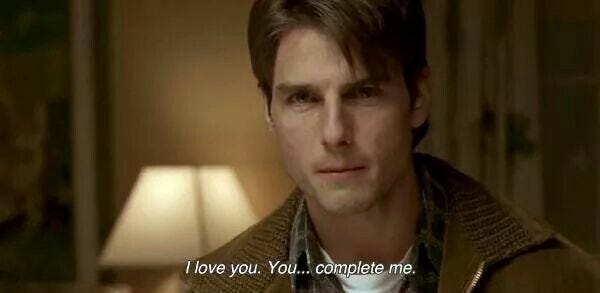Unraveling "We"
The important step of differentiating from a monogamous partner before attempting to pursue non-monogamy (and 3 ways to practice individuation)
Before we get to today’s article: Registration for Nourishing Non-Monogamy, my 15-week online group coaching program, closes this Friday at 5pm! We’ll meet every Sunday from 3-5PM starting Sept. 15th - Dec. 29th & recordings are distributed within 24 hours if you miss the live coaching calls. If you’ve been thinking about this program, and you’re ready to develop more communication skills, confidence and ease around non-monogamous relationships, consider this the last call to sign up! Book a free 30 min consultation with me if you still have questions.
The contemporary narrative of romantic love, perpetuated by countless rom-coms and cultural norms, has ingrained within us the ideal of enmeshed co-dependency, where couples strive to become a single unit. Pop culture often romanticizes the idea of finding "the one" soulmate who will fulfill all of our needs and complete us. This narrative, though romanticized, often leads to unhealthy and unrealistic expectations; the "You Complete Me" mentality, popularized by romantic films like Jerry Maguire, implies that true love necessitates two individuals who are incomplete without each other, suggesting that one's sense of self-worth and identity depends on being in a romantic relationship.
Do you recognize this incredibly monotonous (and mono-normative, hetero-normative) script?
Boy meets girl
They fall in love
Move in together
Get a pet
Have kids
Grow old together
Live “happily ever after”
If this is the mainstream script for love and commitment, we have to ask:
Who came up with this narrative? Are we personally inspired by it?
Is the structure and story still working for us?
Does it align with our vision of how we actually want to love and structure our lives?
Why do statistics show that one in three people, or close to 33 percent, in the U.S. experience loneliness on a regular basis?
If almost half of all marriages end in divorce, where did we go wrong in this tale of “happily ever after?”
Are people experiencing pleasure, love, joy and connection in this “ever after?”
The emphasis on "The Couple" as a singular entity often overlooks the importance of individual autonomy and self-discovery within relationships. As a result, many find themselves feeling disconnected and unfulfilled despite being part of a romantic partnership. The prevalence of loneliness in society, despite the pursuit of traditional relationships, begs the question of whether the current model of romantic love is fulfilling the diverse needs of individuals.
To address these shortcomings…
Keep reading with a 7-day free trial
Subscribe to Navigating Non-Monogamy with Aria Diana to keep reading this post and get 7 days of free access to the full post archives.





